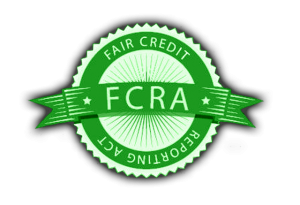Fair Debt Collection Practices Act (“FDCPA”) was enacted to prevent debt collector harassment. The FDCPA prohibits certain types of debt collector conduct when attempting to collect consumer debts. Business debts are not included, but student loans, medical debt, credit card debt, and personal loans are all covered. The FDCPA applies to debt collectors, debt buyers, and law firms collecting upon a debt that did not originate with them. The FDCPA does not apply to original creditors such as Citibank, Bank of America, Sallie Mae, Springleaf, etc.
Some violations of the FDCPA are:
Hours for phone contact: contacting consumers by telephone before 8:00 a.m. or after 9:00 p.m. local time.
At any unusual time: holidays have been found to be inconvenient, so send any calls made on holidays to the Violation Team.
Communicating with consumers at their place of employment after having been advised that this is unacceptable or prohibited by the employer.
If a client receives a call at work, they should always inform the caller that receiving calls are work are unacceptable and indicate this was said on their call log.
Failure to cease communication upon request: communicating with consumers in any way (other than litigation) after receiving written notice that said consumer wishes no further communication or refuses to pay the alleged debt.
Contacting a consumer known to be represented by an attorney.
Once a representation letter goes out, there should be no more calls or letters to the consumer unless it is a lawsuit
Communicating with the consumer or attempting to collect a debt if there has been a documentation or validation request, and they have not yet sent the requested debt validation.
Communication with third parties: revealing or discussing the nature of debts with third parties (other than the consumer’s spouse or attorney)
They may not say they are calling to collect a debt.
Causing a telephone to ring continuously: with intent to annoy, abuse, or harass any person at the called number.
26 calls over a 2 month period was found to be a violation
4 calls in a hour was found to be a violation
Abusive or profane Does not have to be profanity. Examples:
Stating to a consumer with student loan debt, that if she couldn’t afford the $100 a month payment, she should have thought about that before she took out the loan.
Stating- you cannot even begin to imagine the trouble and expense that is about to come into your life if you don’t pay this debt.
Debt Collectors must disclose their identity and which company they work for in each call to the consumer as well as the fact that they are debt collectors.
If a debt collector calls and leaves a voicemail, and someone in the consumer’s house besides their spouse hears it, it may be a violation.
Threatening to garnish your wages without first explaining that the creditor must file a lawsuit and obtain a judgment before garnishing wages.
Stating that the individual is an attorney or that the communication is from an from attorney when that is not true.
Attempting to collect on a debt after it has been discharged in Bankruptcy or after it has been settled or dismissed with prejudice in court.
Communicating or threatening to communicate credit information that is false, including the failure to communicate that a disputed debt is disputed.
Attempting to collect a debt that is past the statute of limitations without stating that the account is time-barred and cannot be sued upon.
Threatening jail time for not paying the debt
If a collection letter threatens litigation and an attorney did not physically sign the collection letter, it is a violation.
Any false information about the debt, such as:
The character or legal status of the debt (such as not informing the consumer their debt is past the statute of limitations and cannot be sued upon)
The amount of the debt
Attempting to collect any amount not authorized by the agreement or permitted by law (such as a debt collector charging collection fees when the original contract did not provide for fees).
Reporting false information on a consumer’s credit report or threatening to do so in the process of collection.
Threatening to unlawfully repossess or place a lien on the consumer’s property
The first collection letter by each collection company must include the 30 day validation language. If the first communication is a call, the debt collector must send a letter to the consumer within 5 days that includes the 30 day validation language. If it is a letter, the 30 day validation language should be clear and easy to find. If that language is on the back of the letter, please send that letter to the Violation team to review.
There should be no collection letters or calls before the validation is provided.


 The telephone Consumer Protection Act (“TCPA”) was passed into law by the Federal Communications Commission (FCC) in 1991 to regulate the use of automated dialing equipment and prerecorded messages. In 2003, the FCC amended its rules under the TCPA to implement the National Do Not Call list.
The telephone Consumer Protection Act (“TCPA”) was passed into law by the Federal Communications Commission (FCC) in 1991 to regulate the use of automated dialing equipment and prerecorded messages. In 2003, the FCC amended its rules under the TCPA to implement the National Do Not Call list. The Fair Credit Reporting Act regulates the collection, dissemination, and use of consumer information, including consumer credit information. It requires that the credit reporting agencies maintain accurate and complete information, investigate and re-investigate any claim by a consumer that information is not accurate.
The Fair Credit Reporting Act regulates the collection, dissemination, and use of consumer information, including consumer credit information. It requires that the credit reporting agencies maintain accurate and complete information, investigate and re-investigate any claim by a consumer that information is not accurate.